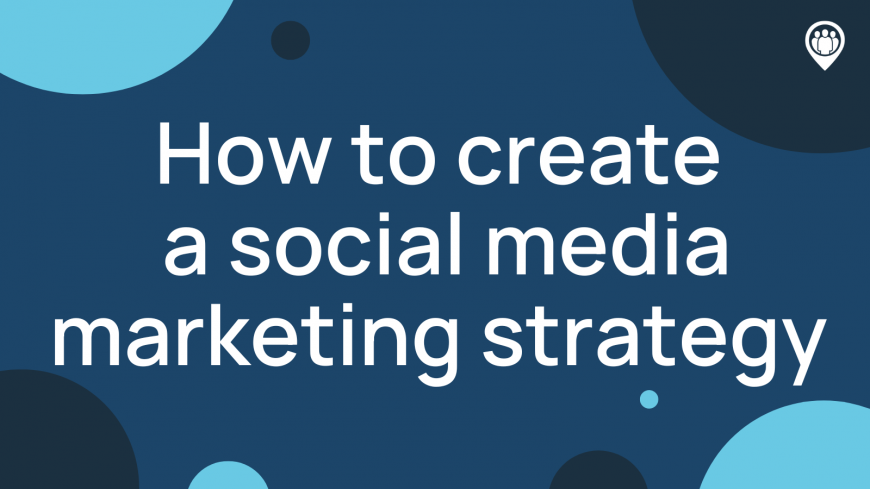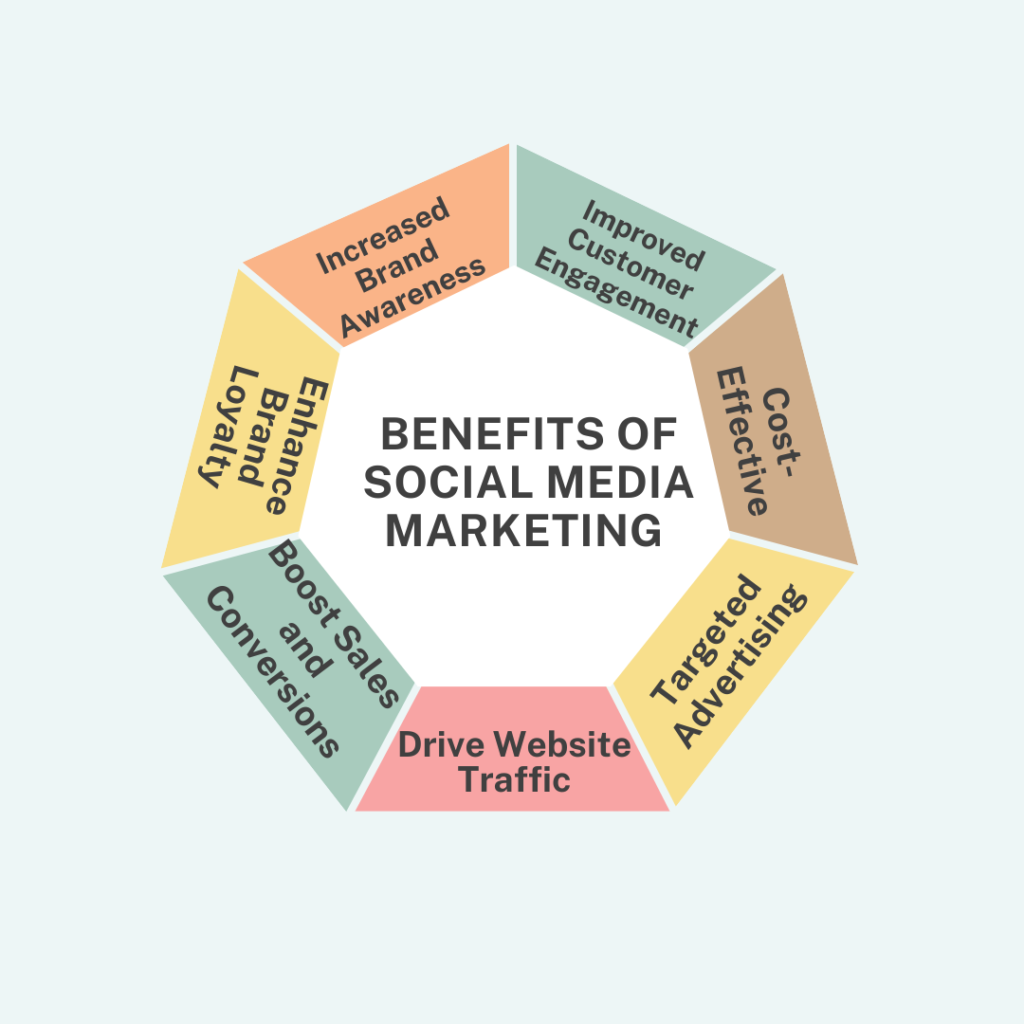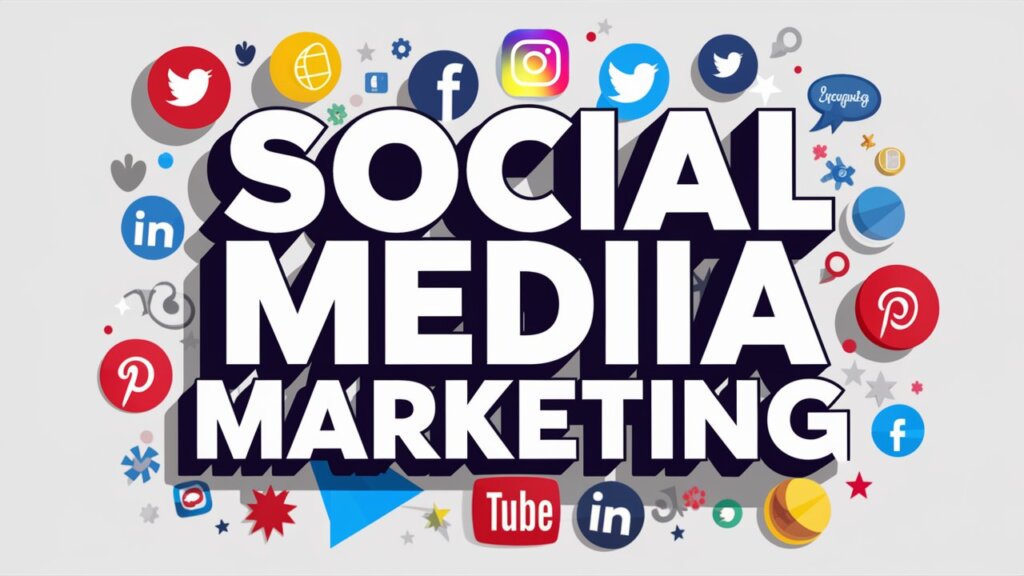The Ultimate Guide to Social Media Marketing: Strategies, Benefits, and Lead Generation
In the realm of digital marketing, Social Media Marketing (SMM) stands as a powerful tool for businesses to engage with their audience, build brand awareness, and drive conversions. This comprehensive blog dives deep into understanding SMM, creating effective strategies, exploring its benefits, analyzing different social media platforms, and utilizing SMM for lead generation. Its the part of digital Marketing to know more about the digital marketing…./https://bijalparmar.com/what-is-the-digital-marketing/
What is Social Media Marketing?

Social Media Marketing (SMM) involves using social media platforms like Facebook, Instagram, Twitter, LinkedIn, and others to connect with your audience, build your brand, and drive business goals. It encompasses activities such as posting content, engaging with followers, running ads, and analyzing results to optimize campaigns.
Creating a Social Media Marketing Strategy
A successful SMM strategy requires careful planning and execution:

- Define Your Goals: Whether it’s increasing brand awareness, driving website traffic, or boosting sales, clearly define what you want to achieve.
- Know Your Audience: Understand who your target audience is, their demographics, interests, and which social platforms they use most.
- Choose the Right Platforms: Focus on platforms where your audience is active and where your content will resonate best.
- Create Compelling Content: Develop content that is valuable, relevant, and engaging. This includes posts, videos, infographics, and more.
- Plan Your Posting Schedule: Consistency is key. Create a content calendar to schedule posts at optimal times for maximum reach and engagement.
- Engage and Interact: Social media is about building relationships. Respond to comments, messages, and mentions promptly to foster engagement.
- Measure Success: Use analytics tools to track key metrics like reach, engagement, and conversions. Adjust your strategy based on data insights.
Benefits of Social Media Marketing
SMM offers numerous advantages for businesses of all sizes:

- Increased Brand Awareness: Reach a larger audience and enhance visibility for your brand.
- Improved Customer Engagement: Interact directly with your audience, build relationships, and gain valuable feedback.
- Cost-Effective: Compared to traditional marketing methods, SMM often provides a higher ROI.
- Targeted Advertising: Utilize detailed targeting options to reach specific demographics and interests.
- Drive Website Traffic: Direct traffic to your website or landing pages through compelling calls-to-action (CTAs).
- Boost Sales and Conversions: Engage potential customers throughout the buyer’s journey and drive them towards making a purchase.
- Enhance Brand Loyalty: Build trust and loyalty by providing valuable content and excellent customer service.
Types of social media marketing
Here are some common types of social media marketing:
- Organic Social Media Marketing:
- Content Marketing: Creating and sharing valuable content (articles, videos, infographics) to attract and engage an audience.
- Community Management: Building relationships with followers through engagement, responding to comments, and fostering conversations.
- Paid Social Media Advertising:
- Social Media Ads: Promoting posts or creating ads on platforms like Facebook, Instagram, Twitter, LinkedIn, etc., to reach specific target audiences.
- Social Media Analytics:
- Data Analysis: Using analytics tools to track performance metrics (engagement, reach, conversions) and optimize strategies.
- A/B Testing: Experimenting with different content formats, ad placements, or targeting options to determine the most effective approach.
- Social Media Optimization:
- Profile Optimization: Ensuring social media profiles are complete, consistent, and optimized for search engines.
- SEO Integration: Using relevant keywords and hashtags to improve visibility and discoverability on social media platforms.
- Content Curation and Content Calendar:
- Content Curation: Sharing third-party content that is relevant and valuable to your audience.
- Content Calendar: Planning and scheduling posts in advance to maintain consistency and maximize engagement.
- Social Media Listening and Monitoring:
- Monitoring Mentions: Tracking mentions of your brand or products across social media to manage reputation and respond to feedback.
- Competitor Analysis: Monitoring competitors’ activities and strategies to identify opportunities and stay competitive.
- Engagement Campaigns:
- Contests and Giveaways: Running promotional campaigns to encourage engagement and increase followers.
- User-generated Content (UGC): Encouraging customers to create and share content related to your brand or products.
- Customer Service and Support:
- Social Media Customer Support: Using social media platforms as channels for customer inquiries, feedback, and support.
These are just some of the main types of social media marketing strategies. Effective social media marketing often involves a combination of these approaches tailored to the specific goals and target audience of a business or brand.
Types of Social Media Platforms

- Facebook: The largest social network with diverse demographics, offering robust advertising options.
- Instagram: Ideal for visual content such as photos and videos, popular among younger demographics and businesses with a strong visual identity.
- Twitter: Known for real-time engagement, hashtags, and trending topics, suitable for quick updates and customer service.
- LinkedIn: A professional network used for B2B marketing, networking, and establishing thought leadership.
- YouTube: The second-largest search engine after Google, perfect for video content and tutorials.
- TikTok: Rising in popularity for short-form video content, particularly among Gen Z and younger audiences.
- Pinterest: Focused on visuals and ideas, beneficial for lifestyle brands, DIY projects, and inspiration.
Using Social Media for Lead Generation
Generating leads through social media involves strategic tactics:
- Offer Valuable Content: Provide content that solves problems or addresses the needs of your target audience.
- Utilize Calls-to-Action (CTAs): Encourage followers to take action, such as signing up for newsletters, downloading resources, or making purchases.
- Run Contests and Giveaways: Engage your audience and capture leads by hosting contests or giveaways.
- Utilize Paid Advertising: Leverage targeted ads on social media platforms to reach specific demographics and capture leads directly.
- Engage and Nurture Leads: Respond to inquiries promptly, engage with comments and messages, and nurture relationships through ongoing interaction.
why social media marketing are important to grow business
Social media marketing is important for growing a business for several compelling reasons:

- Increased Brand Awareness: Social media platforms have billions of users worldwide. By establishing a presence on these platforms, businesses can reach a large audience and increase visibility for their brand.
- Targeted Advertising: Social media platforms offer sophisticated targeting options based on demographics, interests, behaviors, and more. This allows businesses to deliver their messages to specific audiences most likely to be interested in their products or services, thereby maximizing the efficiency of their marketing efforts.
- Customer Engagement: Social media provides a direct line of communication between businesses and their customers. It allows for real-time interaction through comments, messages, and posts, enabling businesses to engage with their audience, address customer concerns, and build relationships.
- Drive Website Traffic: Social media can drive significant traffic to a business’s website. By sharing blog posts, product updates, promotions, and other content, businesses can encourage followers to visit their website, potentially leading to increased sales and conversions.
- Generate Leads and Sales: Effective social media marketing strategies can directly contribute to lead generation and sales. By using compelling calls-to-action, promoting special offers, and showcasing products or services, businesses can convert social media followers into customers.
- Cost-Effective Marketing: Compared to traditional advertising methods, social media marketing often offers a more cost-effective solution. Many social media platforms allow businesses to start with small budgets for advertising and scale up based on performance, making it accessible for businesses of all sizes.
- Insight and Analytics: Social media platforms provide valuable insights and analytics tools that help businesses understand their audience’s behavior, preferences, and demographics. This data can inform future marketing strategies, content creation, and product development.
- Competitive Advantage: In today’s digital age, having a strong social media presence is essential for staying competitive. Businesses that actively engage with their audience on social media can differentiate themselves from competitors and build a loyal customer base.
- Brand Authority and Thought Leadership: Consistently sharing valuable content and engaging with industry trends on social media can position a business as an authority in its field. This enhances brand credibility and trust among potential customers.
- Feedback and Improvement: Social media provides a platform for receiving direct feedback from customers. Businesses can gather insights into customer preferences, satisfaction levels, and areas for improvement, allowing them to refine their products, services, and marketing strategies accordingly.
Overall, social media marketing plays a crucial role in modern business growth by expanding brand reach, fostering customer relationships, driving website traffic, and ultimately increasing sales and revenue.
Conclusion
In conclusion, Social Media Marketing is not just a trend but a fundamental aspect of modern marketing strategies. By understanding its principles, crafting a tailored strategy, leveraging its benefits, exploring various platforms, and mastering lead generation techniques, businesses can effectively harness the power of social media to achieve significant growth and success. Embrace SMM today and unlock its potential to transform your business in the digital age!
